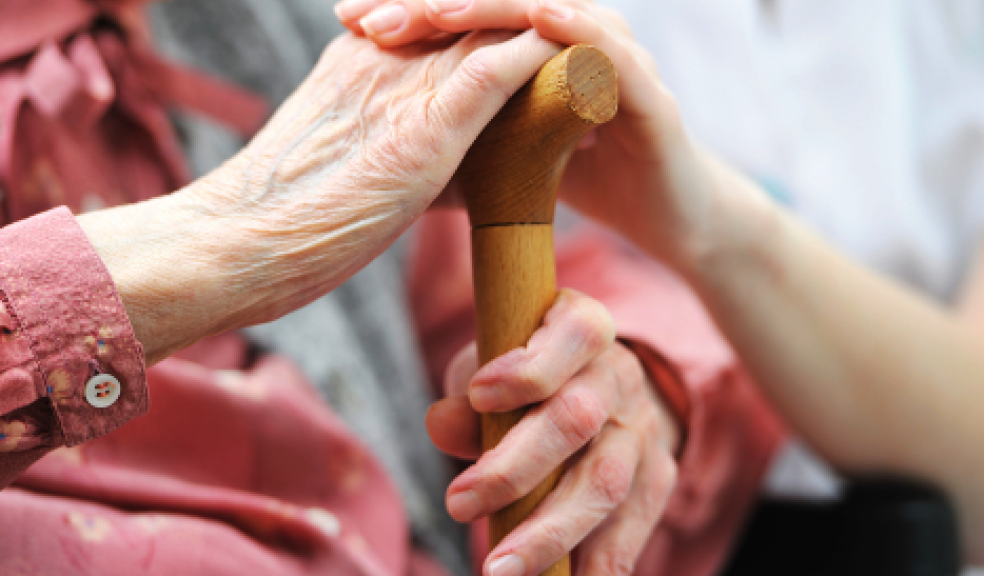
Council to close half of day centres
Devon County Council is to stop providing direct residential care for older people in most of its homes so it can help more elderly people live independently at home or in supported accommodation, and in other residential homes.
Half of the county’s day centres will close with the rest being retained, supporting the most vulnerable and people with disabilities.
Devon already buys 90 per cent of the residential home places it needs from the independent and private sectors.
But it spends nearly 30 per cent of its £70 million residential care budget on providing places for the remaining 10 per cent of residents in its own homes.
That’s because Devon County Council homes cost an average of £903 per bed per week compared to £426 a week in the private sector.
Now, with demand for council beds falling, the authority says it will rely on the private sector to provide more of the residential places it needs.
It can then devote more resources to the increasing number of people who need support to continue living independently in their own homes and those with dementia who need complex care, as well as for people for whom residential care is the best option.
The Council will also work with partners to develop more extra-care housing around the county where people can live behind their own front door with 24 hour a day access to health care and other support services.
Devon is seeking to appoint partners to help deliver a county-wide programme of extra care housing, as well as a wider range of community-based services to support people at home, and will consider whether such housing could be developed on some of the current residential home sites.
A meeting with the Homes and Communities Agency to discuss their latest support proposals has revealed that it has funds available to support extra care housing schemes and the county council has earmarked £8 million to support the design and build phase.
Devon’s two specialist dementia homes in Newton Abbot and Torrington will remain open. The extra care housing schemes could also include provision for people with dementia.
Meanwhile half of the county’s day centres will be retained, supporting the most vulnerable and people with disabilities.
Half though will close after the number of people using them fell by two thirds over the last nine years.
Centres where there is no alternative provision, and non likely in the near future, will remain open until such alternatives are available, or will merge with other units to provide more effective and efficient services.
Devon announced its decision today after months of extensive consultation about the futures of its care homes and day services.
Twenty of its 22 care homes are to close over the next 18 months, with long stay residents moved gradually into private care homes of their choice.
17 day centres will be retained, which will include 11 merging into four day centres and six more staying as they are. The remaining 17 day centres will close. Centres in areas where there is no alternative provision will continue.
Plans to create day centres at Totnes and Tavistock will continue and a new specialist day centre for people with dementia in Newton Abbot is planned to open this year.
Devon says it is the only way that it can make the savings required of it by the Government, and still support the old and vulnerable.
The authority will cut its budget from £600 million in 2009 to £400 million in 2017 as a result of the Government’s austerity programme.
Nine out of every 10 people whose residential care is funded by the Council are cared for in private sector care homes. Just 1 in 10 are cared for in Council-run homes.
Residential care costs the council nearly £70 million a year, of which £18.2 million, nearly 30 per cent, is spent on its own care homes services.
With 30 per cent of its budget going on just 10 per cent of its placements, the council says it is just not sustainable, and if left, would mean fewer people able to access care services in future.
The council says its own homes are too expensive to run. Where the council pays private care homes up to £426 a week for a care bed, its own homes cost on average £903 per bed per week.
But with most (90 per cent) of its care costs relating to staffing, with terms and conditions dictated by national agreements and legislation, its ability to reduce its overheads is limited.
The council says there is sufficient capacity among the 4,300 independent care beds registered in Devon with the Care Quality Commission to meet the demand of council-funded residents.
Independent homes are all subject to the same rigorous monitoring as council-run homes to ensure they meet necessary care quality standards.
The decision means the county council can now target extra investment on services that care for people in their own homes, keeping them safe, independent, and out of long term residential care for as long as possible.
More will be spent on domiciliary care; more on the development of extra care housing and other specialist accommodation; and more on early intervention and reablement care for people after a trauma or hospital stay, which will be provided to more people in their own home.
Meanwhile, the council also supports about 10,500 people in Devon to access day services.
The vast majority - about 85 per cent - are supported to make their own choices and they do other things that do not involve day centres. They are being supported to pursue their choice of hobbies or interests or to attend activities such as memory cafes or luncheon clubs.
About half of the 15 per cent who attend day centres go to council-run centres, while the rest attend independent or charity-run day centres where they socialise, have activities or their meals.
The numbers of people attending council day centres has fallen significantly by two-thirds since 2005, so the cost of providing the service per head has risen to an unsustainable level.
At the same time, take up of Direct Payments, which provides people with the funds to make their own arrangements about what they do during the day, has risen sharply.
Relying more on the independent and voluntary sectors to meet a lot of the day centre demand means Devon can target investment on providing extra support for those organisations as well as help for people who want to do other things, and improve some of its day centres for people with more complex care needs.
The Council received around 2,000 responses to its consultations on the futures of the two services, with most responding to the proposals for day services.
There, concerns were mostly from people who value their current day centres for the socialisation they provide them and the familiarity. Some voiced concern about the risk of isolation if their day centre closes. Others worried about the availability of alternative day centres in their area. Carers highlighted their reliance on day centres as respite to them in their caring role.
Similarly care home residents questioned the availability of suitable alternative residential homes, especially for dementia care. They worry that the quality of care in private homes is not as good as that in Council-run homes. And families are concerned that relatives will not cope well with any move.
Councillor Stuart Barker, the Council's Cabinet Member with responsibility for the Council's care homes and day services, said:
"Nothing will happen immediately. This is a process that will take time and we will do this with great care and sensitivity.
"In taking the decisions I want to ensure that everyone who is entitled to have a service from us gets it, be it residential care or a day service, and that they will continue to receive a service that meets their needs.
"The phased closure of our care homes will be conducted over a period up to 18 months, and that process will be managed case by case with residents and their families.
"No one will within reason need to move until a place at the home they choose to move to is available. The speed of their move will, to a large extent be determined by the residents themselves and the availability of their choice.
"No one will move unless they are able to do so safely.
"We do have considerable experience in helping people find alternative residential care and we fully understand the anxiety that such change can bring to residents and families.
"We will do everything we can to minimise that anxiety, following the very best national guidance and good practice in supporting residents through the transition.
"Regarding day centres, we need to recognise that there are far more people, eligible for our support, who choose not to attend day centres, least of all our day centres.
"We need to support them more, to maximise the opportunities that Direct Payments and personal budgets provides them. We will be working with the private and voluntary sector in local communities.
"We also need to make sure that everyone who chooses to attend day centres can still do exactly that together with their friends if this is their choice as well.
"Nothing will happen immediately and no one will be left without a day service or be financially worse off for it.
"Individual support from independent trained professionals will be provided to help people with more complex care needs.
"Where people are keen to keep friendship groups together, we will aim to do so. We will also arrange taster sessions to give people chance to visit other day centres without committing them."
The final recommendation report for the role of Devon County Council as a provider of day care services is available online at https://new.devon.gov.uk/dayservices.
The final recommendation reporter for the role that the County Council has as a provider of residential care services is available online at https://new.devon.gov.uk/residentialreview.

















